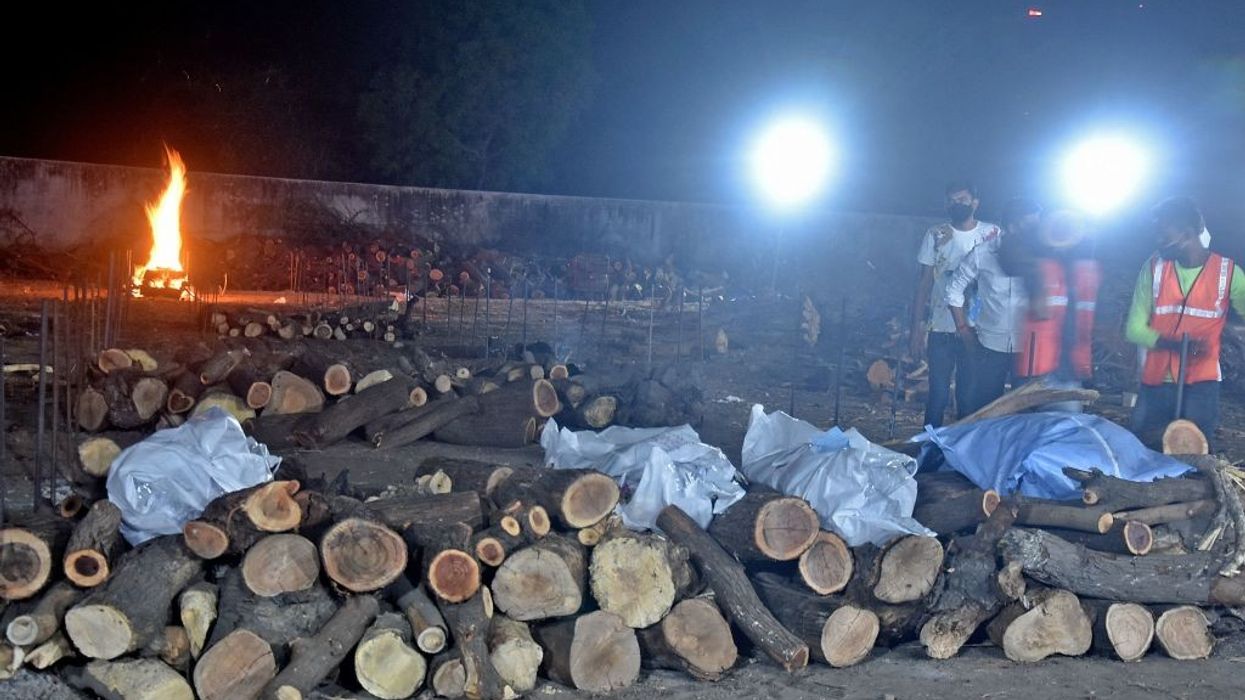AT LEAST seven crematoriums and graveyards in India's western city of Surat saw a more than three-fold rise in the number of cremations and burials last month compared with a year ago, suggesting many more Covid-19 fatalities than an official tally.
The data, gathered from site visits and logs reviewed by Reuters, shows the facilities buried or cremated more than 6,520 bodies in April 2021, up from about 1,980 in April 2020, in the early part of the first wave of coronavirus infections.
Official data for the district of Surat, home to about 6 million people, indicates however that a total of only 585 Covid-19 deaths were recorded for both the city and district in April this year.
The discrepancy between the number of deaths recorded by the crematoriums and graveyards and those officially linked to the virus raises questions about the accuracy of Surat's fatality data at a time when healthcare experts have raised concern about significant underreporting of Covid-19 deaths across India.
Surat municipal commissioner Banchha Nidhi Pani said large numbers of patients had come from outside the city, inflating the figures from the city's crematoriums and graveyards.
"The increase in the number of deaths can be largely attributed to this," he said.
State government data shows 1,205 probable Covid-19 deaths in Surat in April were those of people from other places, he said.
There were reports that several major cities were reporting far larger numbers of cremations and burials under coronavirus protocols than official Covid-19 death tolls.
The new figures, from all of the large facilities in Surat, are among the most comprehensive for an Indian city to date.
They tally with media reports from hospitals and death certificate data across the state of Gujarat, home to Surat.
Divya Bhaskar, a Gujarati-language newspaper, reported 123,873 death certificates were issued in the state from March 1 to May 10, up from 58,068 for the corresponding period last year. Registered deaths in Surat rose by a similar amount.
Gujarat’s junior home minister, Pradipsinh Jadeja, said in response that the state government had a transparent online system of issuing death certificates, and the disparity could stem from delayed reporting in the same 2020 period because of a coronavirus lockdown nationwide.
'Tsunami of bodies'
At Ashwini Kumar crematorium, the largest in the city best known for its diamond-polishing industry, there were 3,129 cremations in April, according to trustee Prashant Kabrawala.
That is up from about 1,200 in April 2020.
Nine gas crematoriums, capable of processing a body every 45 minutes, worked non-stop, with some relatives not being given time to pay their respects, he said.
"It was like a tsunami of bodies," said Subash, a senior official at the cremation ground, who declined to be identified by his second name.
"We were going to collect bodies from hospitals every 25 to 30 minutes. Even at night the surge did not stop."
At Kurukshetra crematorium, the city's second largest, furnaces ran for so long without a break that a chimney collapsed because of overheating.
White smoke bellowed out of three chimneys as bodies were being burnt.
The facility cremated more than 100 bodies a day on several days in April, according to records.
At a crematorium in the Umra area - the city's third largest - Reuters reviewed data showing 212 bodies were cremated in April 2020. This year, it rose to 874.
The trend was the same at four Muslim burial grounds, where workers have had to hire mechanical excavators to keep up with demand.
At the Gore Gariba Kabrastan, the oldest and largest graveyard in Surat, the number of burials jumped to an all-time high of 91 in April this year, compared with 19 in the same month last year, according to Aiyub Mohamed Yacoobali, secretary and managing trustee of the site.
"The average number is around 20 a month, but this April has been extraordinarily harsh," he said.
The graveyard employs four permanent grave diggers but had to hire two more due to the unprecedented rush for burials. Even that wasn't enough.
"The six grave diggers were working non-stop, but the situation was still unmanageable," Yacoobali said.
"We had to hire a JCB in April to dig the graves," he said, referring to a mechanical digger.





